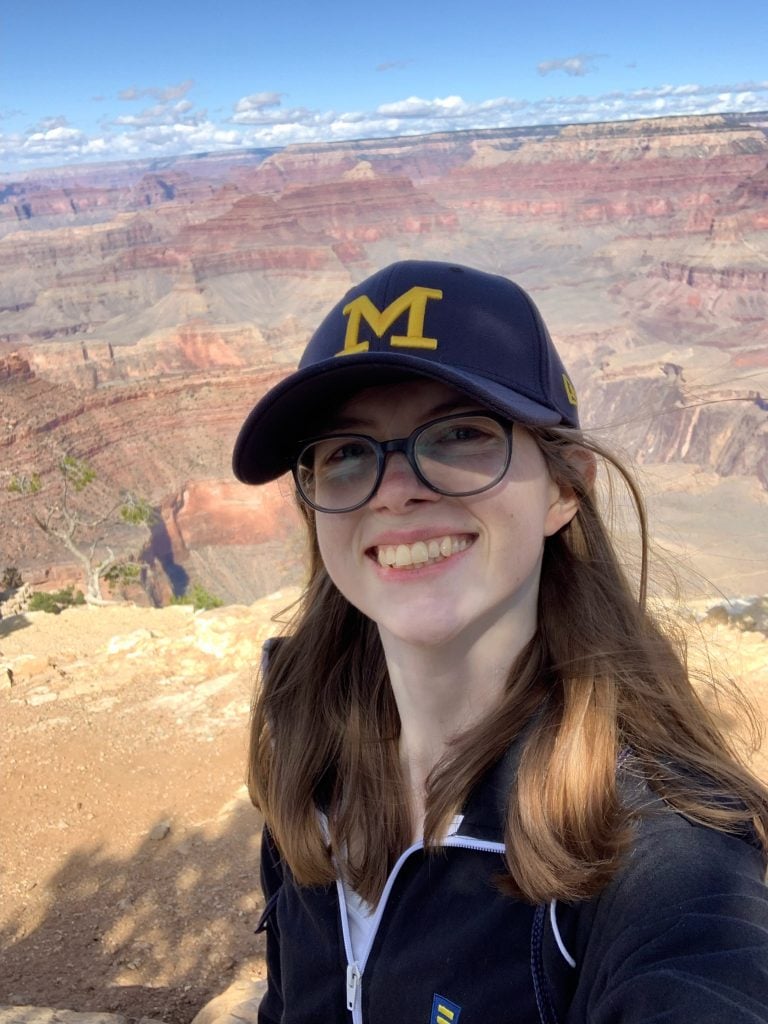What does disability pride mean?
Every July, Disability Pride Month commemorates the passage of the Americans with Disabilities Act in 1990. Disability Pride can mean different things to different people, but for Point Alum Ashley Burnside, her disability provides her with strength and resilience.
Point Alum Ashley Burnside was born with cerebral palsy, the most common childhood motor disability. Growing up, it was common for her to feel disdain towards her cerebral palsy for making her life harder and making her feel different from her friends.
As a teenager, her experiences as both a young girl living with cerebral palsy and a lesbian prompted Ashley to meet with school boards and the Michigan House of Representatives to demand a statewide anti-bullying policy. This was in 2011, when Michigan was one of six states in the country without an anti-bullying law. Ashley, her friends at Riot Youth, and other determined activists convinced their representatives to pass the Public Act of 241 of 2011, which required every school district in the state to create an anti-bullying policy.
While her cerebral palsy taught Ashley how to deal with being different from her peers, her lesbian identity and activism has empowered her to take pride in her disability.
“As a result of my involvement in the LGBTQ+ community, I have learned the importance of feeling pride in every part of who I am,” Ashley said. “My disability provides me with strength, resilience, and makes me a better person. My queer identity helped me see that.”
How can LGBTQ+ spaces be more inclusive of people with disabilities?
Ashley became a Point Flagship Scholar in 2013, while she was pursuing a degree in social theory and practice at the University of Michigan. Since graduating, Ashley has worked at the forefront of important social change.
Her first job out of college was as a Pedro Zamora Public Policy Fellow at AIDS United, where she focused on HIV/AIDS policies at the federal level. She currently works as a Policy Analyst for the Center for Law and Social Policy, where she primarily focuses on SNAP, TANF, and other poverty relief programs.
Her focus on social justice includes taking an intersectional approach to disability services and education. She believes that an important step towards being inclusive of the disability community is educating yourself on different disabilities and on how to make spaces accessible for people with disabilities.
“Unfortunately, many LGBTQ+ spaces are not ADA-accessible (especially bars),” Ahley said. “Many bars require stairs to enter or to use the bathroom. When you are hosting an LGBTQ+ event, try to find a space that is accessible to people with disabilities.”
Ashley believes an important tool in supporting LGBTQ+ women with disabilities is to normalize their existence, specifically by including greater representation in literature, media, and popular culture.
“I think the next battles for disability rights are the same battles that we have been fighting for generations – ensuring the right to affordable and comprehensive healthcare, home and community-based services, education, and other public goods.
Ashely continues to continue to work to remove the stigma around having disabilities and to redefine the narrative of what it means to be disabled.

